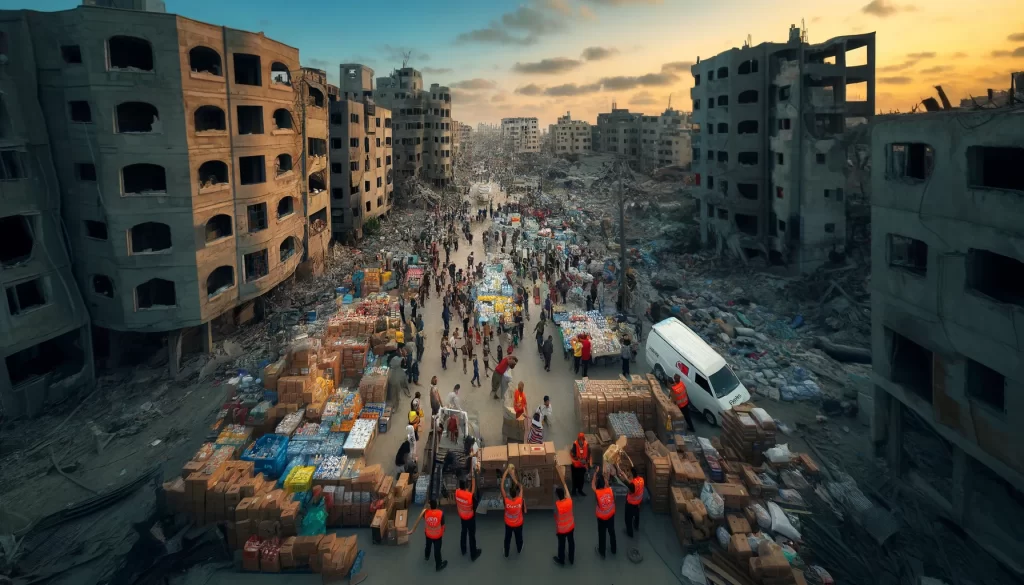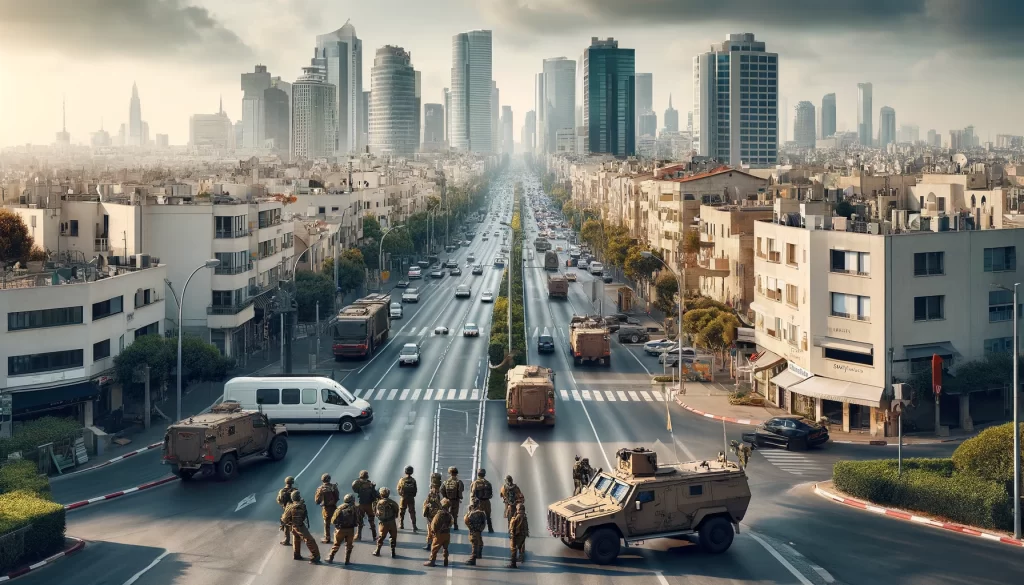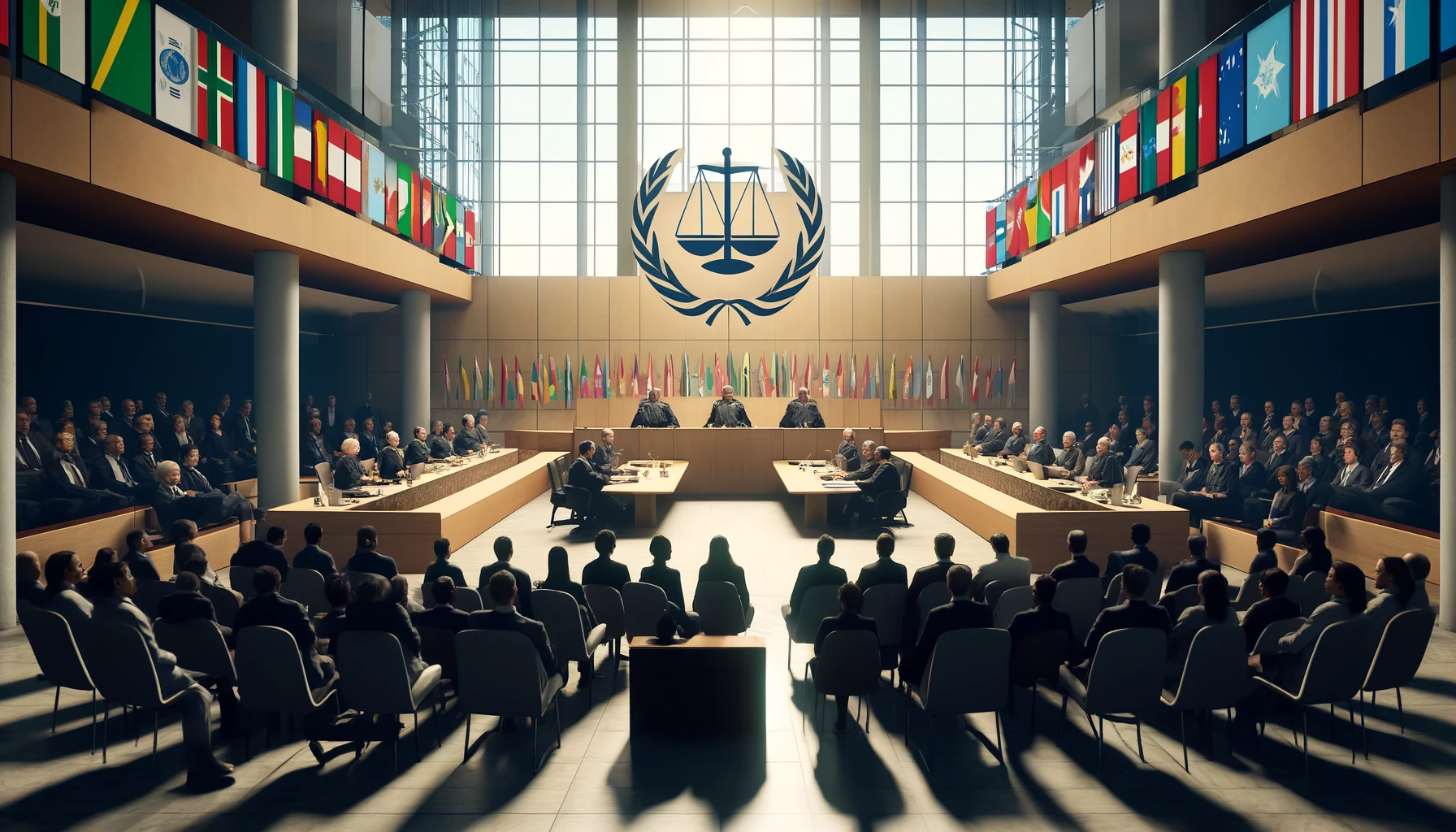On May 20, 2024, the International Criminal Court (ICC) Prosecutor Karim Khan announced his request for arrest warrants targeting leaders from both Israel and Hamas. This decision is based on alleged war crimes and crimes against humanity committed during the seven-month war between Israel and Hamas, which began on October 7, 2023. The request must still be approved by the court’s judges, but it marks a significant step in international efforts to address accountability in the conflict.
Details of the Request
The key individuals named in the ICC prosecutor’s request include:
- Israeli Prime Minister Benjamin Netanyahu
- Israeli Defense Minister Yoav Gallant
- Yahya Sinwar, Hamas’s leader in Gaza
- Muhammad Deif, Hamas’s military leader
- Ismail Haniyeh, Hamas’s political leader based in Qatar
Khan stated, “No foot soldier, no commander, no civilian leader — no one — can act with impunity”.
Allegations Against Hamas Leaders
The ICC prosecutor has accused Hamas leaders of several severe crimes:
- Extermination and murder: Hundreds of Israeli civilians were killed in attacks perpetrated by Hamas, particularly by its military wing, the al-Qassam Brigades.
- Taking hostages: At least 245 hostages were taken during the October 7, 2023 attack.
- Rape and sexual violence: Hostages have been subjected to sexual violence, including rape, while in captivity.
- Torture and cruel treatment: Hostages have endured torture and other forms of cruel treatment.
- Outrages upon personal dignity: Acts committed during captivity that violate personal dignity.
Khan’s office conducted extensive investigations, including interviews with survivors and eyewitnesses, analysis of video and photographic evidence, and visits to attack sites. The investigation revealed that these crimes were part of a widespread and systematic attack against the civilian population of Israel by Hamas.

Allegations Against Israeli Leaders
Netanyahu and Gallant are accused of the following crimes:
- Using starvation as a method of warfare: Israel is accused of intentionally causing food and water shortages in Gaza, contributing to malnutrition and dehydration among the civilian population.
- Wilfully causing great suffering or serious injury: Actions included the imposition of a total siege on Gaza, blocking essential supplies, and cutting off water and electricity.
- Directing attacks against civilians: Israeli forces are accused of targeting civilians, including those queuing for food and aid workers.
- Extermination and/or murder: The death toll from these actions includes numerous civilians, including women and children.
Khan emphasized that while Israel has the right to defend itself, it must comply with international humanitarian law. The means chosen by Israel, including the blockade and attacks on civilians, are considered criminal under international law.

Responses and Reactions
The announcement has sparked significant controversy and condemnation from various parties:
- Israeli Government: Netanyahu condemned the accusations as disgraceful and antisemitic, stating they were an attack on Israel and its military. He vowed to continue the war against Hamas. Defense Minister Gallant also rejected the allegations, calling the ICC prosecutor morally blind. Other Israeli leaders, including President Isaac Herzog and opposition figures like Benny Gantz and Yair Lapid, united in condemning the ICC’s decision.
- Hamas: The militant group denounced the ICC’s actions, accusing Khan of equating the victim with the executioner. Hamas asserted their right to resist Israeli occupation, including through armed resistance.
- United States: President Joe Biden and Secretary of State Antony Blinken both condemned the ICC’s request. Biden described the attempt as outrageous and emphasized that there is no equivalence between Israel and Hamas. Blinken reiterated the US position that the ICC lacks jurisdiction over the conflict and accused Hamas of being a brutal terrorist organization responsible for the worst massacre of Jews since the Holocaust.
Implications and Next Steps
While Israel is not a member of the ICC and does not recognize its jurisdiction, the issuance of arrest warrants could complicate international travel for the accused Israeli officials. The ICC relies on its member states to enforce its warrants, which include most European countries but not the United States or Israel. This means that if the warrants are issued, Netanyahu and Gallant could be arrested if they travel to any of the ICC’s 124 member nations.
The court’s judges can take weeks or even months to decide whether to issue the arrest warrants. This decision comes at a time when Israel is already facing scrutiny from other international bodies. For example, the International Court of Justice (ICJ) is assessing a claim by South Africa that accuses Israel of genocide in Gaza, which Israel strongly denies.
The Legal and Humanitarian Context
The ICC’s investigation and subsequent request for arrest warrants underscore the complexities of international law and the challenges of holding individuals accountable for actions taken during armed conflicts. The court is mandated to prosecute the world’s most serious crimes when national jurisdictions are unwilling or unable to do so.
The conflict between Israel and Hamas has resulted in significant humanitarian crises. According to Gaza’s Health Ministry, at least 35,000 Palestinians have been killed, and around 80% of the population of 2.3 million has been displaced. The war has also severely impacted Gaza’s infrastructure, leaving many without access to basic necessities like food, water, and medical care.
This article is based on the following articles:
https://apnews.com/article/icc-khan-netanyahu-070941d21ccd1f2b9611032b88527575

Background Information
1. International Criminal Court (ICC)
The International Criminal Court (ICC) is a permanent international tribunal established to prosecute individuals for genocide, crimes against humanity, war crimes, and the crime of aggression. The ICC was established by the Rome Statute, which was adopted in 1998 and came into force in 2002. It is based in The Hague, Netherlands.
- Jurisdiction: The ICC can prosecute crimes committed on the territory of states that have ratified the Rome Statute or by nationals of those states. It can also investigate crimes referred to it by the United Nations Security Council.
- Membership: As of now, 124 countries are member states of the ICC. Notable non-members include the United States, Israel, Russia, and China.
2. Rome Statute
The Rome Statute is the treaty that established the ICC. It outlines the court’s functions, jurisdiction, and structure. Key points include:
- Crimes under ICC Jurisdiction: Genocide, crimes against humanity, war crimes, and the crime of aggression.
- Complementarity Principle: The ICC can only prosecute cases if national jurisdictions are unwilling or unable to do so.
3. Israel and Hamas
- Israel: A country located in the Middle East, Israel was established in 1948. It has a complex history of conflict with its Arab neighbors and the Palestinian population.
- Hamas: An Islamist militant and political organization based in the Gaza Strip. Hamas has governed Gaza since 2007 after winning elections and subsequently expelling rival Fatah forces. It is considered a terrorist organization by Israel, the United States, and the European Union.
4. Gaza Strip
The Gaza Strip is a small region along the Mediterranean coast, bordering Egypt and Israel. It is home to about 2 million Palestinians and has been under an Israeli-Egyptian blockade since Hamas took control in 2007. The blockade severely restricts the movement of people and goods, leading to significant economic and humanitarian challenges.
5. Israeli-Palestinian Conflict
A longstanding conflict over land, national identity, and political sovereignty between Israelis and Palestinians. Key events include:
- 1948 Arab-Israeli War: Following the creation of Israel, neighboring Arab states invaded. The war resulted in significant displacement of Palestinians.
- 1967 Six-Day War: Israel captured the West Bank, Gaza Strip, and East Jerusalem, territories Palestinians claim for a future state.
- Oslo Accords (1993-1995): A series of agreements aimed at achieving a peace treaty. They led to the establishment of the Palestinian Authority and limited self-governance in parts of the West Bank and Gaza.
6. Recent Conflict and the October 7, 2023 Attack
The conflict that began on October 7, 2023, saw Hamas militants launch a large-scale attack on Israel, killing around 1,200 people and taking approximately 245 hostages. In response, Israel launched a military campaign against Gaza, resulting in significant casualties and widespread destruction.
7. International Humanitarian Law
A set of rules that seek to limit the effects of armed conflict for humanitarian reasons. Key principles include:
- Distinction: Parties to a conflict must distinguish between combatants and civilians.
- Proportionality: Attacks should not cause excessive civilian harm in relation to the anticipated military advantage.
- Necessity: Only military actions necessary to achieve a legitimate objective are permitted.
- Humanity: Inflicting unnecessary suffering or harm is prohibited.
8. War Crimes and Crimes Against Humanity
- War Crimes: Serious violations of international humanitarian law during armed conflict, such as intentionally targeting civilians, using prohibited weapons, and committing torture.
- Crimes Against Humanity: Widespread or systematic attacks against civilians, including murder, rape, and other inhumane acts.
9. United Nations and Other International Bodies
- United Nations (UN): An international organization founded in 1945 to promote peace, security, and cooperation. It plays a key role in mediating international conflicts and providing humanitarian aid.
- International Court of Justice (ICJ): The principal judicial organ of the UN, dealing with disputes between states. It is different from the ICC, which prosecutes individuals.
10. Key International Reactions
- United States: Strongly supports Israel and opposes the ICC’s jurisdiction over Israeli actions, emphasizing Israel’s right to self-defense.
- European Union: Generally supports the ICC’s role in promoting accountability but individual member states have varied reactions to specific cases.

Debate/Essay Questions
- Is it justified to equate the actions of Israeli leaders with those of Hamas leaders in terms of war crimes and crimes against humanity?
- Should the United States support or oppose ICC actions?
Please subscribe to Insight Fortnight, our biweekly newsletter!
